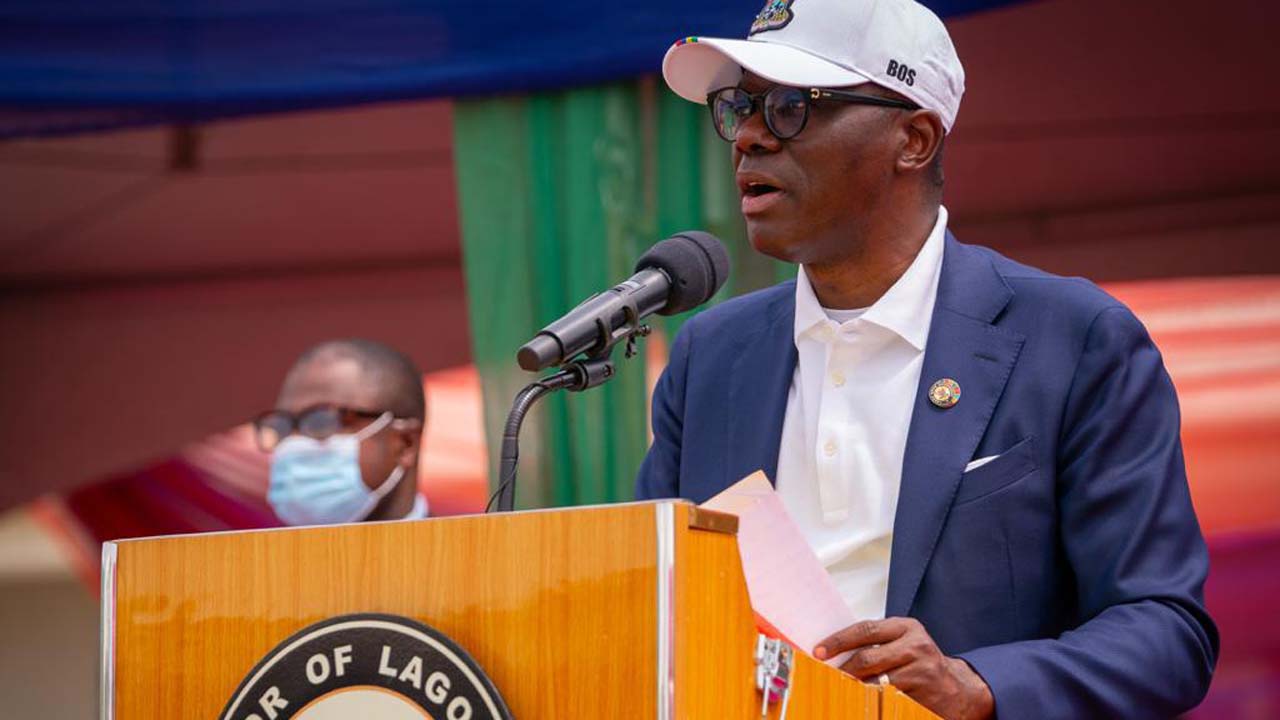The delivery of services to citizens is a crucial function of government organizations, and technology has the potential to significantly enhance this function. ELIZABETH ADELEYE, who attended this year’s e-government conference, reports.
There is no gainsaying the fact that technology can assist governmental organisations in becoming more effective, efficient, and receptive to the needs of the public, especially from e-government services to process automation.
But what appears currently lacking is willpower, which was emphasised at the Nigeria eGovernment Summit 2024, organised by DigiServe Network Services Limited in Lagos.
The conference, which gathered experts from both public and private institutions, had its theme: “Transforming Governance with Technology for Improved Economy.”
Speaking at the forum, Lagos State Governor, Babajide Sanwo-Olu, said that there should be more focus on technology to enhance governance across states and at the federal level.
Sanwo-Olu, who assured Nigerians that the state will continue to invest in technology to deliver government services to the people, insisted that technology will address inefficiency in governance, advance development and impact economic growth.
The governor, represented by the Permanent Secretary, Ministry of Information, Science and Technology, IbilolaKasumu, said Nigeria e-Government Summit 2024, reaffirmed government’s commitment to harnessing technology’s potential to drive inclusive growth, enhance service delivery and foster transparency.
“Technology offers us an unprecedented opportunity to address inefficiencies in governance through the adoption of e-government strategies, where technology is seamlessly integrated into government processes and service delivery, to revolutionise governance in ways that can profoundly impact economic growth. Incorporating technology into governance brings with it many advantages that we cannot afford to ignore. First, it enhances the efficiency and cost-effectiveness of government service delivery.
“In a world where time and resources are precious, leveraging technology enables faster and more reliable service provisions, reduces bureaucratic bottlenecks and eliminates redundant processes. It will help citizens to access government services from the comfort of their homes, and businesses, and interact with government agencies more easily, leading to increased productivity and economic activity,” Sanwo-Olu said.
Coming from the background of technology in identity management, the Director-General/CEO, National Identity Management Commission (NIMC), Abisoye Coker-Odusote, who presented one of the keynote addresses at the summit, laid more emphasis on the theme: ‘Transforming Governance with Technology for Improved Economy’.
Coker-Odusote, who was represented by the Head, Enterprise Services and Network Infrastructure at NIMC, Elias Okafor, said the government must leverage technology to create systems that are efficient and transparent, to achieve better service delivery to the citizens and foster economic growth.
“Identity management is therefore key in unlocking the potential of digital services, ensuring security, trust and inclusivity in the ecosystem. NIMC will continue to provide the robust, secure and inclusive digital identity infrastructure that supports effective governance and empowerment of the Nigerian economy,” Coker-Odusote said.
She said identity management is fundamental to unlocking the potential of digital services and ensuring security, trust and inclusivity in the ecosystem.
According to her, through partnerships with key agencies such as the Federal Immigration Service, the Nigerian Immigration Commission, the Federal Roads Safety Corps, the Nigerian Interbank Settlement System, the National Health Insurance Authority, the Joint Admission and Matriculation Board, the National Pension Commission, and the National Youth Service Corps, “we have integrated and extended verification to a wide array of services, enabling seamless interaction between governments and citizens. The harmonization and integration framework is also being used for social intervention programmes and health care services, ensuring that resources are distributed equitably and transparently.”
She said the next aspect of NIMC’s endeavoring to technology has to do with the self-serve, saying this has given Nigerians the need to be able to manage their data themselves.
According to her, this enhancement provides a one-stop shop for applicants, enabling them to manage their needed records efficiently.
“None of these innovations would have been possible without the entire workforce driving this innovation. At NIMC, we have invested heavily in capacity building, ensuring that our staff members are equipped with the latest knowledge in identity management, cybersecurity, and digital governance. This commitment to human capital development extends beyond our organization as we actively collaborate with industry experts to share knowledge and best practices,” she stated.
Coming from the perspective of development and coordination, the DG/CEO, National Information Technology Development Agency (NITDA), KashifuInuwa Abdullahi, who was represented by the Director, eGovernment Development and Regulations at NITDA, Dimie Shively Wariowei, stressed the benefits of technology in driving e-government services.
According to Abdullahi, the Federal Government has taken bold steps in ensuring that government services are delivered, using technology. He called on the private sector and the federal government to emulate countries that are leading in the use of technology to drive government services to the people.
Abdullahi said there must be proper coordination of the activities of government, the private sector and the citizens, before the government can deliver efficient services to the people.
“Coordination is key, and in the case of Nigeria, we find that the government has taken a bold step to ensure that government services are delivered using technology. It is important to note that the 8th Pillar of the Renewed Hope Agenda of President Bola Ahmed Tinubu, addresses e-governance and delivery of effective services to Nigerian citizens. Then, our minister, Dr. Tijani Bosun, came up with his blueprint for cascading the hopes of Mr. President, and how he will implement that. And then, we also have what each of those agencies under the ministry should perform, what they should perform.
“That has now trickled down to NITDA. We have eight pillars addressing literacy, policy delivery, infrastructure, collaboration and partnerships. So, all these are made to ensure that the desires of Mr. President are carried to the letter,” he stated.
Abdullahi however, said without effective connectivity, e-governance would not work.
“So in the process of this, Nigeria needs to look at a few countries that have done very well in the area of e-governance. We need to learn from them. If we can be that consistent and determined to deliver on each of those components, then we will be able to make progress,” Abdullahi said.
From his perspective, the Managing Director/CEO, Galaxy Backbone Limited, Prof. Ibrahim Adeyanju, said to promote e-government and share strategies for effective deployment and to enable government leverage technology to make governance easily available and productive, among other benefits, platforms like the e-government summit must continue to play a pivotal role in bringing together, government officials, industrial experts, and international experts to share knowledge, best practices in e-government.
“The theme’s primary focus demonstrates Nigeria’s resolve and motivation to make a critical advancement in its quest for digital transformation, as well as a calculated stride ahead,” Adeyanju said.
According to him, through smart governance, digital platforms, and innovative data-driven solutions, we are witnessing an era where public services are more accessible, decision-making is more informed, and our economies are poised for exponential growth.
Earlier in his welcome address, the Executive Chairman, DigiServe Network Services Limited and the convener of the Nigeria eGovernment Summit, Lanre Ajayi, said the summit had a clear objective to encourage governments at all levels to drive their service delivery with technology and to propose to governments, solutions and strategies required for effective deployment of eGovernment services.







